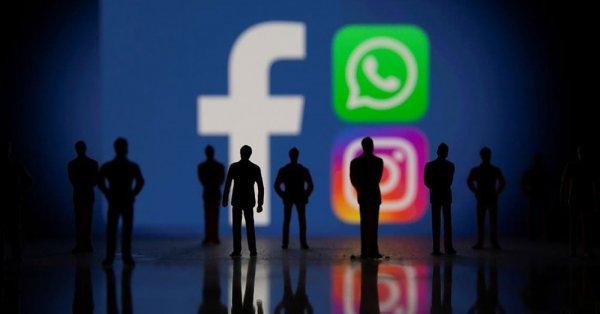Facebook has apologized after it stopped working for users around the world for several hours on Monday.
The WhatsApp and Instagram applications owned by the company were also disrupted.
In short, Facebook's systems have stopped talking to the wider internet.
Web infrastructure company Cloudflare explained that it was as if "someone pulled the cables from their data centers (Facebook) all at once and disconnected them from the Internet".
Facebook's explanation was a little more technical.
Skip topics that may interest you and continue reading. Topics that may interest youtopics that may interest you. End
Tell us about an activity you haven't done for a while that you used as an alternative when you were surprised that Facebook/Instagram/WhatsApp services were down
The company said that "setting changes to the primary routers, which coordinate network traffic between our data centers, caused problems that broke that connection. This had the effect of ... our services stopped."
Why can't people access Facebook?
The Internet is divided into hundreds of thousands of networks. Big companies like Facebook have their own larger networks - known as autonomous systems.
When you want to visit Facebook (or WhatsApp or Instagram) your computer must connect to their network, using what's known as Border Gateway Protocol (BGP) - a type of postal service over the Internet.
In order to direct people to the websites they want to visit, BGP looks at all available paths that data can travel through and chooses the best route.
On Monday, Facebook suddenly stopped providing the information the system needed to function.
This means that no one's computers have any way to connect to Facebook or its other sites.
The failure of these major Internet players has had a huge impact, on individuals and businesses all over the world.

Downdetector, which tracks outages in online services, said it had reported some 10.6 million problems worldwide, the largest number ever recorded.
For many, losing access to Facebook services was just an inconvenience. But for some small businesses in the developing world that have no other reliable ways to communicate with customers, it could be a serious problem.
Similarly, some organizations whose employees are still working remotely following the coronavirus pandemic are now relying on WhatsApp to keep colleagues in touch.
A wave of reports started around 16:45 BST, on Monday, that Facebook, WhatsApp and Instagram were not working.
At first, this caused the usual jokes about how people were treated, and mocking competitors like Twitter.
But it soon became clear that this was a more serious problem - with reports of chaos at Facebook's California headquarters.
The reason it took so long to fix it, Shera Frenkel, The New York Times technology reporter, told the BBC that "the people trying to figure out what this problem was couldn't even physically get into the building" to work out what was wrong. that happened.
We don't know yet if the problem is caused by a software bug or simple human error.
However, conspiracy theories are already circulating, including the possibility that the incident was orchestrated by a Facebook employee.
Somewhat embarrassingly, Facebook founder Mark Zuckerberg had to turn to rival Twitter to apologize.
The incident raises questions about the way Facebook has pulled much of its technical operations together in recent years, says Mike Proulx, an analyst at Forrester Research.
He says it has made it more efficient, but means that if something goes wrong, there can be a "cascading effect".
Facebook has had service outages before, but they've generally been fixed within an hour or so.
The longest and most annoying outage, like this one, illustrates the problem of concentrating so much of the world's communications in Silicon Valley.
This, in turn, raises questions about whether the work of the Internet should be in the hands of a few big corporations.
Perhaps the biggest problem for Facebook itself is the impact the downtime has had on its revenue and share price. The shutdown resulted in ads not showing for more than six hours across its platforms.
According to some, the outage could have caused a loss of up to $6 billion to Zuckerberg's personal fortune, with his shares dropping nearly 5 percent.
Others estimate the loss of revenue for the company could be more than $60 million.
This blow to Facebook's reputation comes at a difficult time, as a former Facebook employee - who reported wrongdoing and leaked many internal documents - appeared before a US Senate hearing on Tuesday.
The social media giant is also under scrutiny from telecoms regulators around the world, who question whether it is responding appropriately to issues such as misinformation, hate speech, its handling of user data, or whether - as the whistleblower says - - Prioritizes "profit over safety".
Now Facebook's technical capabilities are also being questioned.